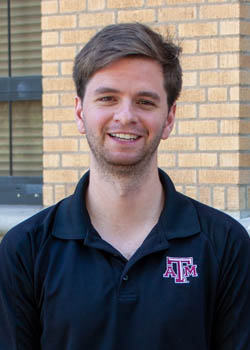
Short Bio:
Dmitri Margot is a Ph.D. student working with Dr. Shaheen Dewji in her Radiological Engineering, Detection, and Dosimetry Laboratory (RED2). The focus of his research is on discriminating radionuclides biokinetics following an exposure or uptake from a radiological dispersal device (RDD), improvised nuclear device (IND), or nuclear accident involving realistic source term evaluation (particle size/uptake mode/chemical form) of radionuclides to more accurately enhance the biokinetic movement (i.e. metabolism) from uptakes of particulates or fallout. His work will be used to better inform radiation countermeasures by more precisely encompassing the statistical variability of source terms and biokinetic parameters from uptakes from exposed members of the public, first responders, or military personnel.
Margot received his undergraduate degree in Radiological Health Engineering from Texas A&M University. During his undergraduate studies, Margot was a research assistant at the Texas A&M Institute for Preclinical Studies (TIPS). There he studied medical imaging and worked on developing a model for dose from canines in clinical PET-CT cases. As a graduate researcher, Dmitri has worked with the Center for Radiation Protection Knowledge at Oak Ridge National Laboratory studying the biokinetics of beryllium. Margot now works with Dr. Dewji at TAMU.
NSSPI Publications:
- D. Margot, L. Cochran, C. Jelsema, S. Dewji, "Uncertainty Propagation in ICRP 66 Human Respiratory Tract Model (HRTM) Applications in DCAL", 66th Annual Meeting of the Health Physics Society, Phoenix, Arizona, July 25-29, 2021.